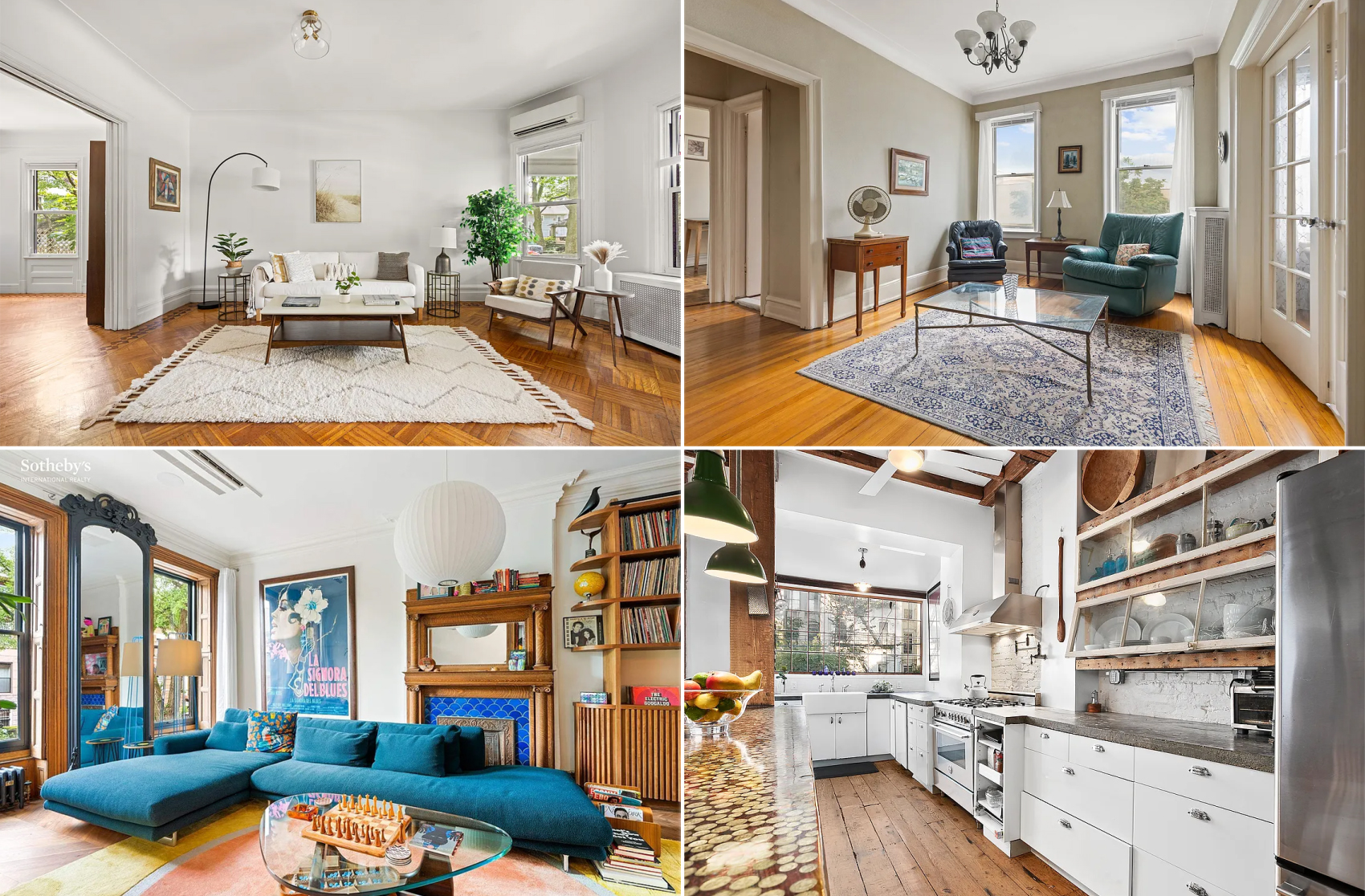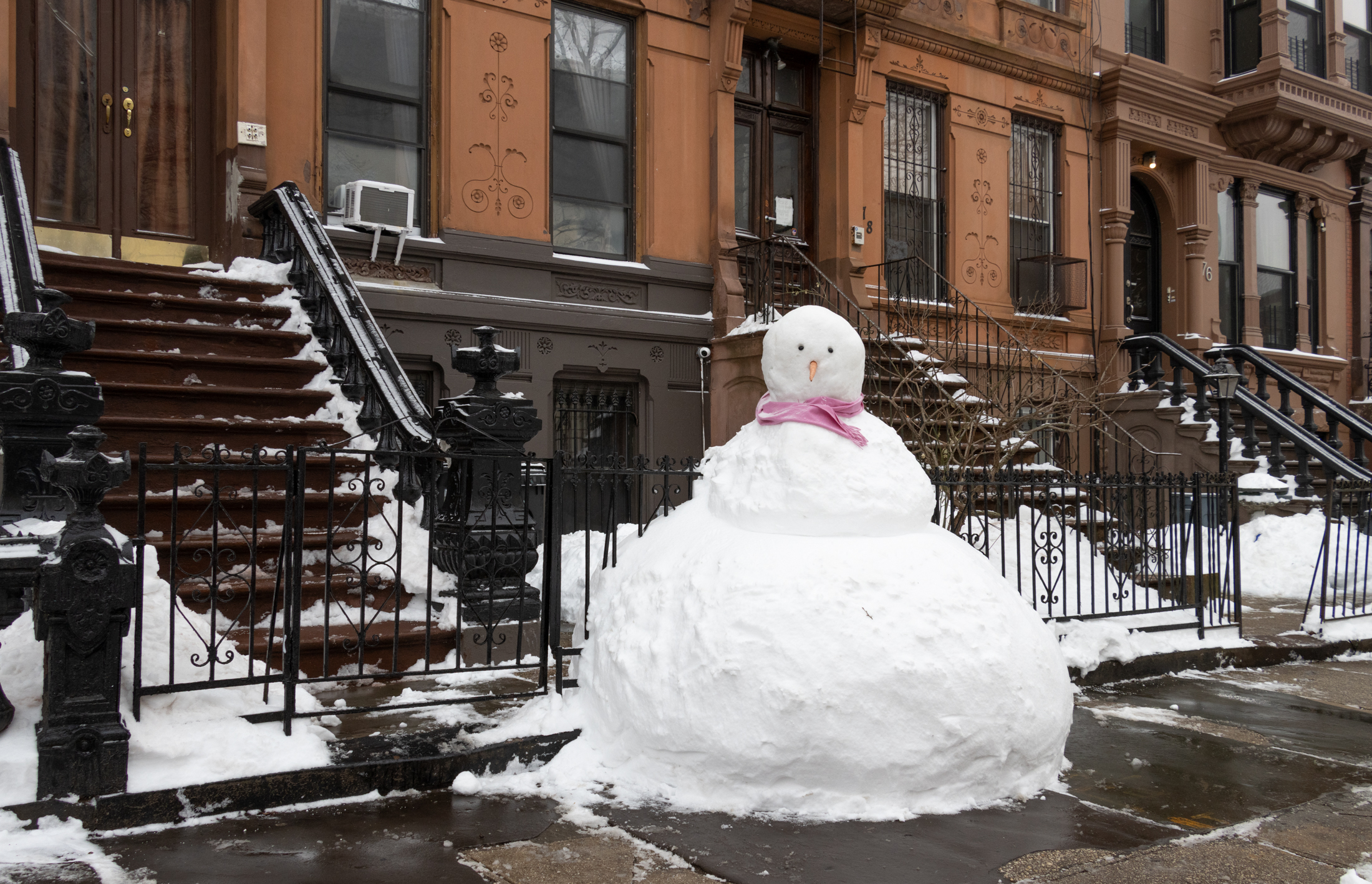Corcoran '07 Market Report: Brooklyn's Still Up
The Corcoran Group released its year-end market data today, and the brokerage’s stats show the ’07 Brooklyn market making healthy (if not huge) gains over 2006. The median sales price on all condos and co-ops was up 7 percent last year, to $590,000, while median townhouse values rose 2 percent in ’07, to $1.2 million….

 The Corcoran Group released its year-end market data today, and the brokerage’s stats show the ’07 Brooklyn market making healthy (if not huge) gains over 2006. The median sales price on all condos and co-ops was up 7 percent last year, to $590,000, while median townhouse values rose 2 percent in ’07, to $1.2 million. The really fun part of the report, however, is its breakdown of how various neighborhoods have fared, sales- and price-wise (see chart on jump). The big winner? Brooklyn Heights, where the median price shot up 19 percent, to $1.3 million. Cobble Hill/Carroll Gardens, on the other hand, showed a median price decrease of 9 percent, going from $950,000 in 2006 to $860,000 in 2007. And Park Slope’s median price slipped from $999,000 in ’06 to $928,000 in ’07. We have a few reservations about this report, including that it doesn’t specify the total number of sales it tracks, that it only compares year-over-year values, and that it basically only covers the priciest brownstone neighborhoods—though we have to give it up for the big C for devoting so much ink to Brooklyn sales data. The article in the Times this morning about the record-setting fourth-quarter Manhattan market notes that Brooklyn’s gains were more “stable” than Manhattan’s. Brooklyn showed its maturity this year because the appreciation was much more steady, said Corcoran Group president Pamela Liebman. Anyhow, do these numbers jibe with pricing trends you’ve noticed over the past year?
The Corcoran Group released its year-end market data today, and the brokerage’s stats show the ’07 Brooklyn market making healthy (if not huge) gains over 2006. The median sales price on all condos and co-ops was up 7 percent last year, to $590,000, while median townhouse values rose 2 percent in ’07, to $1.2 million. The really fun part of the report, however, is its breakdown of how various neighborhoods have fared, sales- and price-wise (see chart on jump). The big winner? Brooklyn Heights, where the median price shot up 19 percent, to $1.3 million. Cobble Hill/Carroll Gardens, on the other hand, showed a median price decrease of 9 percent, going from $950,000 in 2006 to $860,000 in 2007. And Park Slope’s median price slipped from $999,000 in ’06 to $928,000 in ’07. We have a few reservations about this report, including that it doesn’t specify the total number of sales it tracks, that it only compares year-over-year values, and that it basically only covers the priciest brownstone neighborhoods—though we have to give it up for the big C for devoting so much ink to Brooklyn sales data. The article in the Times this morning about the record-setting fourth-quarter Manhattan market notes that Brooklyn’s gains were more “stable” than Manhattan’s. Brooklyn showed its maturity this year because the appreciation was much more steady, said Corcoran Group president Pamela Liebman. Anyhow, do these numbers jibe with pricing trends you’ve noticed over the past year?
Apartment Prices in Manhattan Defy National Real Estate Slide [NY Times]
Photo by threecee.






The influx of Europeans is not only holding up some of the real estate purchases in NYC, but it’s also increasing the quality of life at the same time.
There are a lot of people who have come to NYC to escape the rest of the conservative U.S. and live amongst a more liberal-minded crowd. My parents who live in the burbs have no desire to go to Europe to vacation and approaching their 60’s, have never left the country. That is the norm.
I, however go to Europe at least once a year, if not more and think there are a lot of things that the U.S. could learn from Germany, Britain, etc.
So for me it’s just making New York all the more appealing, while at the same time basically making it so that with each passing year, New York City becomes less and less like the rest of the U.S.
Just my own personal opinion, of course. I know there will be those that say…who cares about Europe…who cares about what they do, go move there, blah blah blah.
But we are humans first, and Americans second. I believe connecting with people from other countries is what this country really needs to work on if it has any chance of competing with places like China and India, where nearly every person there can name our top elected officials and then some, whereas I think something like 10% of Americans can’t even tell you who our own president is.
True story.
Lou how can you say:
“But the problem is that almost everyone in the last 5 or 6 year have been buying with the expectation of future value increase.”
which is virtually the definition of ‘bubble’ and then believe
NYC is going to do well over a 10 year period. – when referring to individual (i.e. non-investment) property?
Agreed, 1:35 about European buyers. When we sold our Park Slope coop 2 out of 5 of the most serious potential buyers were European. One German one Brit.
Yeah 1:34 but then you still won’t buy. You’ll all say to each other, “maybe the prices will go even lower if we wait until after the strike ends because surely prices will go down even more”.
The What
You did say friends you “had”. Maybe those friends you had sold their houses, took the money and ran down South to get away from you.
1:41 – I know it seems as though I’m talking about Apples in an Orange grove….
But the problem is that almost everyone in the last 5 or 6 year have been buying with the expectation of future value increase.
To me, that is Speculation and it stops being about buying a place to live which is what a home should be. It is now an investment.
If the mentality of home buyers have changed from owning a “HOME” to owning an “INVESTMENT” that happens to dub as a home at the same time, then the thinking is now skewed in terms of an Investing mentality.
And that is what happened. People started expecting their homes to go up in value. That mere thought makes them think of their homes as an investment.
The problem is that they are not Investors, and therefore, were incredibly naive in their new way of thinking. They do not understand how to do their due dilligence and put themselves in jepordy to the point where so many ordinary non-investors did the samething that it has destablized the economy.
In otherwords, they were thinking of Future Value without understanding how to calculate it.
Investor Lou
i don’t happen to think she’s a moron.
i’ve worked with her in the past, and she is quite intelligent and loves this city more than just about anyone i know.
Given the fact that I see Marty Markowitz’s name an face all over the place, I think it is not out of the question we might see him make a run for mayor.
“if christine quinn becomes the next mayor of nyc, all will be fine.
she seems to be on top of things.”
She’s a moron, actually.